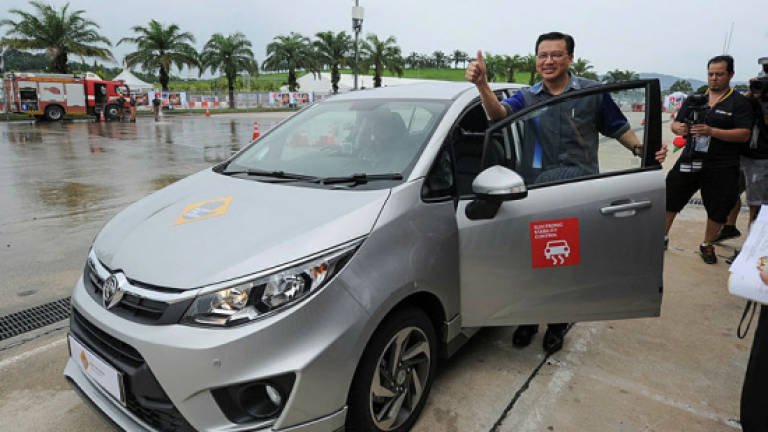Electronic Stability Control to be compulsory from June 2018

SEPANG: The government has fast forwarded its plan to make it compulsory for new passenger cars to have Electronic Stability Control (ESC) from 2021 to June 1, 2018.
Announcing this today, Transport Minister Datuk Seri Liow Tiong Lai said Malaysia is the first country in the region to regulate the application of ESC as safety-assist technology in new cars, as a result of constant pressure by Asean NCAP (New Car Assessment Programme) with car manufacturers.
It is learned that the Road Transport Department had initially planned for ESC to be part of the UN/ECE regulation for passenger cars sold in Malaysia by 2021.
Liow said that ESC could prevent at least 40% of deaths due to crashes as a result of losing control.
"It could further reduce risk of collisions by having significant better maneuvering control during critical situation," he said at the Stop the Crash Asean 2016 at Sepang International Circuit.
Currently, new local car models launched this year such as Proton Persona (all variants), Proton Perdana 2.4 litre, Perodua Bezza (premium) and Proton Saga (premium) are installed with ESC.
"Studies have proved that ESC is the most cost-effective life saving device at present, with positive results from mandating ESC in many countries such as EU, United States, Turkey, Australia, New Zealand, Japan, South Korea and others," Liow added.
Explaining on the cost-benefit ratio of ESC which is eight to 14 times better than head-restraint system, 18 times better the centre belt and 10 to 28 times higher than advanced airbag, Liow said frontal collision and loss of control were the main causes of crashes and deaths on the road.
"From last year's police data, these type of collision contribute to 45.39% of fatal accidents. Even though human made errors while driving, safer vehicle and and safer road can minimise the outcome of a crash," he explained.
Asked if the government will make it compulsory for anti-lock braking system (ABS) to be installed in motorcycles, Liow said it could be a possibility in the future.
"But let's take one step at a time with ESC, child car seat regulation in 2019 and others," Liow said.
Asean NCAP has outlined safety assist technologies (SAT) for all new passengers which include ESC together with anti-lock braking system (ABS), blind spot technology, automated emergency braking (AEB), lane departure, seat belt reminder for driver, front and rear passengers as well as forward collision warning systems in its road map for 2017-2020.
Asean NCAP secretary-general Khairil Anwar Abu Kassim said SAT will contribute to 25% of the overall safety rating for new cars in the next four years.